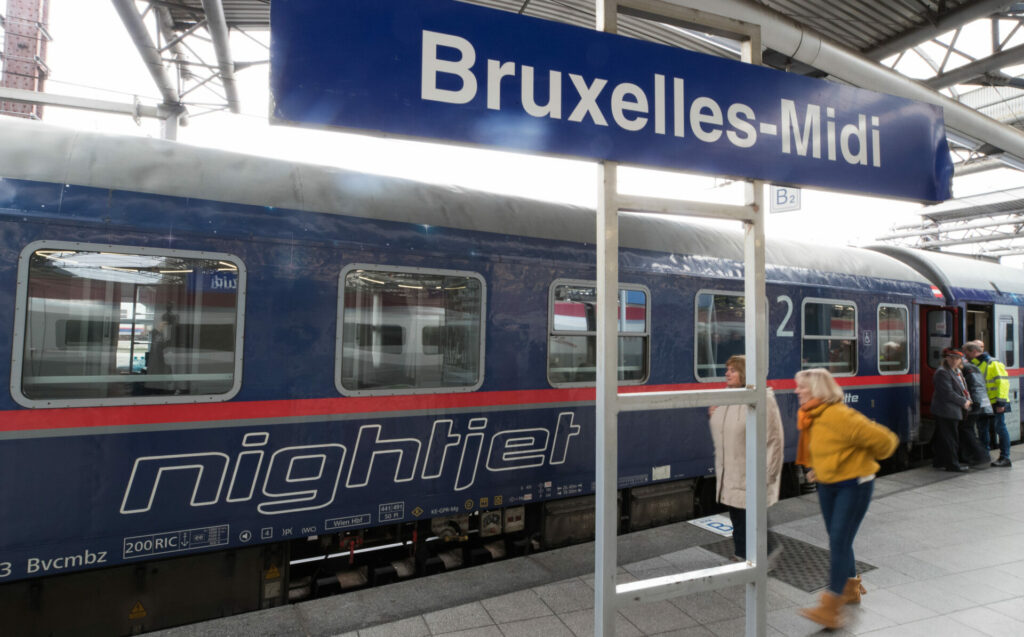Ten pilot projects for new railway links between major European cities, including an overnight train between Brussels and Barcelona, have been selected by the European Commission to receive support.
The project by European Sleeper, the Belgian-Dutch-Belgian initiative behind upcoming night trains to Berlin and Prague, to connect Amsterdam, Brussels and Barcelona was among those selected. To "avoid disappointment" — the company has a reputation for running behind schedule — it has not given a start date for this specific train.
The delays were mostly the result of the many problems that can affect the operation of new cross-border trains, from capacity allocation and poor coordination between infrastructure managers to a lack of funding and shortage of carriages. The Commission noted it wants to assist railway companies and authorities involved across the continent to overcome these issues.
"While demand for green mobility is growing, we need the rail market to respond much better and much faster, especially for long and cross-border journeys," European Commissioner for Transport Adina Vălean said.
Faster, frequent and affordable
For this reason, the European Commission wants to help rail companies by "breaking down the many barriers to cross-border rail." The support does not involve projects receiving specific European funding — although exceptions are possible — however, the Commission believes the benefits for selected projects are clear.
"The Commission, and the European Railways Agency, will prioritise support to applicants to address cross-border obstacles. Assistance could be provided, for example, in the form of coordination of stakeholders and assessment of compatibility with the legal framework. For selected pilot services, applicants can use the status of ‘pilot service’ for publicity and communication purposes."
Related News
- Daily Brussels-Vienna night trains to run from end 2023
- Lonely Planet releases top holiday destinations for 2023
It is hoped the supported pilot projects can serve as evidence that these obstacles can be overcome."These ten pilots are only the first step, with the aim of gathering valuable experience, for future projects to come," Vălean noted, adding that they will help make cross-border rail connections across the EU "faster, more frequent and more affordable."
The other selected projects are listed below.
- An initiative by the Hungarian Ministry of Transport to connect Hungary with Austria and western Romania;
- Various initiatives as part of a collective project connecting Germany, Denmark and Sweden (SJ, DSB, DB, Snälltaget, České dráhy and Flixtrain);
- Midnight Trains' new night service between Paris, Milan and Venice;
- Flixtrain's new service between Munich and Zurich;
- WESTbahn's new service between Munich, Vienna and Budapest, which is an extension of an existing service;
- Nederlandse Spoorwegen's enhancement of the existing Amsterdam to London service, in cooperation with Eurostar;
- Ferrovie dello Stato Italiane and Deutsche Bahn's services between Rome and Munich, and Milan and Munich;
- ILSA's Lisbon – A Coruña and Lisbon – Madrid services
- Ferrocarrils de la Generalitat de Catalunya's new services connecting Catalonia and the South of France

